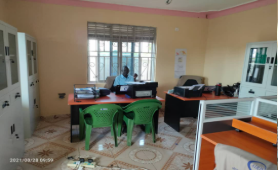Where we work

We operates in South Sudan, with the headquarter in Juba capital city. We work in ten states and three administrative areas of south Sudan. we focus on providing humanitarian assistance to the locals of south Sudan. We work in the following states:
1. Central Equatoria State
- Capital: Juba, the capital of both the state and the country, is a central hub for us.
- Focus of Operations: Its the state where our main office is. Work often involves administration, government liaison, urban health and education programs, and infrastructure development.
- Challenges: While Juba has more infrastructure than other areas, we still face challenges with power, water, and security risks, especially in areas outside the main city center.
2. Eastern Equatoria State
- Capital: Torit
- Focus of Operations: We majorly focus on health, food security, and agriculture, as the region has a strong potential for farming. Eastern Equatoria also has educational and community development projects.
- Challenges: Limited infrastructure, occasional insecurity, and the remoteness of some villages make operations challenging.
3. Jonglei State
- Capital: Bor
- Focus of Operations: Jonglei is known for its humanitarian needs due to frequent floods, intercommunal violence, and food insecurity. We focus on emergency response, health services, nutrition, education, and peacebuilding.
- Challenges: Jonglei’s extreme weather, lack of infrastructure, and high levels of insecurity pose significant challenges, especially during the rainy season when many areas are only accessible by air.
4. Unity State
- Capital: Bentiu
- Focus of Operations: Unity has some of the highest levels of food insecurity and displacement, so we focus on emergency food distribution, health services, and water, sanitation, and hygiene (WASH) projects.
- Challenges: Conflict and frequent flooding make Unity State particularly challenging. Many organizations operate out of camps like the Bentiu IDP camp, one of the largest in the country.
5. Upper Nile State
- Capital: Malakal
- Focus of Operations: We focus on emergency health services, food assistance, and protection due to ongoing displacement and intercommunal conflict. There’s also a focus on education and livelihood support.
- Challenges: Infrastructure is limited, and there is frequent displacement due to conflict. Flooding and seasonal inaccessibility also create logistical challenges.
6. Lakes State
- Capital: Rumbek
- Focus of Operations: Lakes State often sees projects centered on peacebuilding, healthcare, education, and food security. We work on improving water access and sanitation.
- Challenges: Intercommunal violence is prevalent, and infrastructure is minimal. Some rural areas are difficult to reach, especially in the rainy season.
7. Warrap State
- Capital: Kuajok
- Focus of Operations: In Warrap, we typically engage in food security programs, emergency health services, and peacebuilding activities. Efforts also target nutrition and maternal-child health due to high rates of malnutrition.
- Challenges: Seasonal flooding, insecurity, and limited access to clean water make operations here challenging. Poor road networks further complicate transportation of goods and personnel.
8. Western Bahr el Ghazal State
- Capital: Wau
- Focus of Operations: Our Programs in this state often focu on education, health, and protection services, as well as water and sanitation initiatives. Wau has experienced less intense conflict than other states, making it more stable for development programs.
- Challenges: Infrastructure is slightly better in Wau town, but rural areas remain difficult to reach, especially during the rainy season.
9. Northern Bahr el Ghazal State
- Capital: Aweil
- Focus of Operations: We primarily engaged in food security, nutrition, health services, and agriculture due to frequent droughts and food shortages.
- Challenges: Northern Bahr el Ghazal has limited infrastructure, and seasonal droughts pose risks to food security. Accessibility is challenging, particularly in remote rural areas.
10. Western Equatoria State
- Capital: Yambio
- Focus of Operations: In Western Equatoria we often focus on agricultural development, health services, and education. This state has a higher potential for agricultural productivity, so some programs support farming and livelihoods.
- Challenges: While Western Equatoria is relatively more stable, it faces occasional security issues and limited infrastructure in rural areas.
Cross-Cutting Challenges Across States
- Security Risks: Many states face challenges with intercommunal violence, sporadic armed conflict, and general instability.
- Climate Impact: South Sudan has frequent flooding and drought cycles that heavily impact access, food security, and the effectiveness of operations.
- Infrastructure: Road networks and infrastructure are minimal, with many areas becoming isolated during the rainy season, leading to heavy reliance on air transport.
These states each have unique needs and operational challenges, from severe insecurity and extreme weather to widespread food insecurity and healthcare shortages. The focus areas for organizations reflect a balance between emergency response and sustainable development.
© © 2021. All Rights Reserved. AIRD. Designed & Developed by Dynamic Consult
